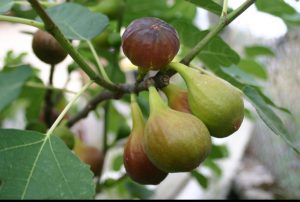The current season present a riot of colors in the market produced by a variety of fruits. There is not a fruit shop, kiosk or hand or donkey pulled cart that does not display mangoes, apples, apricots, peaches , grapes and winter melons with their white pulp and dripping syrup and many other fruits that are colorful, delicious and spread an appetizing smell in the atmosphere.
The scene is of course dominated by mangoes regarded as the king of fruits and for good reason. Its taste is not just superb but the kind that one does not want to wash away.
The mango season is nearing its end but the markets are still full of the fruit, giving the surrounding a pale to golden hue. Similarly, apricots are on the way out and so are peaches but grapes and apples are taking their place on shelves and carts and it is clear that for many weeks the colorfulness of markets would sustain instead of fading.
The fruits prices have increased over the years but considering the levels of inflation, they are still far more reasonable than the prices of other commodities. Which means that the growers are being deprived of their due and fair share.
Actually, fruit growers, particularly those producing quickly perishable fruits are rarely given proper reward of their labor. The main profit goes to middlemen who purchase at low rates, hand over the commodity to retailers and get out of the business while the going is good.
The retailer is often as badly hit as grower because those managing small level business have no facilities for keeping fruit in cold storage and a considerable percentage of what they purchase from middlemen simply rots.
The amount of fruit that is wasted is no body’s business. No one has ever calculated the quantities thus wasted but off hand one feels that they must be massive. Two months back, the President of Pakistan came up with an agriculture package that has been lauded by sycophants across the country though mercifully the National Assembly had some members who criticized the package.
But their focus was more political than geared to the demands and requirements of farmers; fruit growers, particularly small farmers growing fruits, had no place in their rhetoric.
Neither was there a reference to fruits in the presidential package which is unfortunate because the agriculture of Pakistan is not just wheat, rice, sugar cane and cotton; its range and potential are wide and properly exploited, they can add to economic wealth of the country.
Fruits are one of the gifts of nature to Pakistan but like many other assets, we have failed to be grateful and taken things for granted. The government machinery that is supposed to guide farmers and assist them professionally restricts itself to main crops; such things as fruits and vegetables are not on their agenda unless some influential farmer approaches them.
It seems that know-how for fruits is limited in the government agencies and they ignore the sector because of their limitations. Mangoes get some attention but that is because of their export value.
Moreover, most growers have big orchards and the new generation of growers has started managing their orchards on modern scientific lines. They are receiving excellent results and, as a result, exports are increasing. But other fruits are mostly neglected produce.
It is time, the government started attending to this sector and developed it along professional, modern lines and also came up with policies that offered incentives to fruit based industries.
The fruits can be and should be preserved and, most importantly, ways and means should be found to reduce the quantity of wasted fruit. As it is, considerable quantities are damaged during transportation from orchards and fields to markets because of the awful state of farm to market roads and transportation facilities that small farmers are forced to use.
They have no option but t o rely on what is available in terms of transport and what they get is some kind of rake off arrangements. Fruit grading, packaging, better handling, cleaning them of residue of sprays and better market conditions are required to ensure that wastage is reduced and farmers and growers get decent, if not, proper share for their contribution.
What the government must do is come up with a policy for fruits so that the grower is encouraged and investors find it an area of their interest and of course benefit.
The real requirement of the fruit sector is a policy that organizes it like the citrus fruit’s handling. Citrus has by-products and its market for exports has been established. That has taken a long time but the example is there for the government to follow. Breaking fresh ground is not the pressure.
But the federal government will still have to go about things methodically and meanwhile put provincial governments under pressure to attend to frits more carefully as agriculture is a provincial matter.
Courtesy: The DAWN







